It’s no secret that San Miguel de Allende’s expat paradise is losing its shine. You might have heard about its colorful streets and artistic charm, but significant challenges drive residents away beneath the picturesque surface. Your dream of living in this Mexican colonial gem is confronting harsh realities like skyrocketing living costs, increasing crime rates, and infrastructure strain. While the city remains visually stunning, you’ll discover that the practical aspects of daily life are becoming increasingly complex. The once-welcoming community is now experiencing significant demographic shifts, with long-time residents and newcomers questioning whether San Miguel de Allende can maintain its legendary appeal.
The Allure of San Miguel de Allende
To understand the magnetic pull of San Miguel de Allende, you must first appreciate its extraordinary blend of colonial charm and modern vibrancy. This UNESCO World Heritage site beckons travelers and expatriates with its stunning colonial architecture, cobblestone streets, and vibrant cultural landscape. You’ll find yourself captivated by the city’s unique ability to preserve historical beauty while offering contemporary experiences that make it a truly exceptional destination.
Historical Significance
With a history dating back to the 16th century, San Miguel de Allende is a living testament to Mexican colonial heritage. You’ll walk streets where Spanish conquistadors once tread, surrounded by meticulously preserved baroque buildings and magnificent churches. The city’s architectural integrity and historical importance make it a profound destination for those seeking to connect with Mexico’s rich cultural narrative.
Artistic Community
The significance of San Miguel de Allende’s artistic reputation cannot be overstated. You’ll discover a thriving creative ecosystem that attracts artists, painters, sculptors, and writers worldwide. The city’s numerous galleries, workshops, and art schools provide an inspiring environment that nurtures creativity and artistic expression.
Understanding the depth of San Miguel’s artistic community reveals a complex and dynamic cultural landscape. International artists alongside local talents create a unique fusion of styles and techniques. The Instituto Allende and various art centers offer workshops, exhibitions, and collaborative spaces, making the city a global destination for artistic exploration and innovation.
Cultural Experiences
Immersing yourself in San Miguel de Allende means embracing a world of rich cultural experiences. You’ll encounter vibrant festivals, traditional music performances, culinary events, and local celebrations that showcase the city’s diverse and inclusive cultural tapestry. The blend of indigenous, colonial, and contemporary influences creates a unique artistic environment.
The allure of cultural experiences in San Miguel extends far beyond traditional tourism. You’ll engage with local communities, participate in traditional ceremonies, and explore deep-rooted customs that provide profound insights into Mexican culture. Cooking classes, language exchanges, and community events offer authentic connections that transform your understanding of this remarkable destination.
Cost of Living
While San Miguel de Allende has long been considered a paradise for expats, the escalating cost of living is becoming a significant deterrent for many residents. The economic landscape has dramatically transformed, making it increasingly challenging for both locals and foreigners to maintain their lifestyle in this once-affordable Mexican destination.
Rise in Housing Prices
To understand the housing market’s impact, you’ll notice that property values have skyrocketed by over 50% in recent years. The charming colonial homes and attractive real estate have drawn international buyers, driving prices beyond what many long-term residents can afford.
Inflation and Daily Expenses
Any discussion about living costs must address the significant inflation affecting everyday expenses. Groceries, utilities, and basic services have seen substantial price increases, challenging your budget and financial planning.
For instance, you might experience price hikes of 10-25% annually across various sectors. Food, transportation, and healthcare costs have become particularly burdensome, and local markets and services reflect these dramatic economic shifts.
Comparison to Other Destinations
An analysis of living expenses reveals stark differences between San Miguel and other Mexican destinations:
| Location | Average Monthly Cost |
|---|---|
| San Miguel de Allende | $1,800 |
| Guanajuato | $1,200 |
| Mérida | $1,400 |
Considering the comparative data, San Miguel de Allende stands out as significantly more expensive. The premium pricing reflects its international reputation, artistic community, and tourism appeal, but it also creates financial pressure for residents seeking affordability.
Tourism vs. Local Life
San Miguel de Allende has transformed from a quiet colonial town to a bustling international destination for years. You’ll witness how tourism has dramatically reshaped the city’s economic and social landscape, creating both opportunities and challenges for residents. The exponential growth in visitor numbers has fundamentally altered the traditional dynamics of community life, pushing locals to adapt to an increasingly globalized environment.
The Burden of Increased Visitors
Above the picturesque streets, you can see the overwhelming impact of mass tourism. The visitor surge has led to skyrocketing housing prices, making it increasingly difficult for local families to afford to live in their neighborhoods. You’ll observe how rental properties and Airbnb have replaced long-term residential spaces, displacing traditional community structures.
Changes in Local Traditions
The burden of modernization weighs heavily on San Miguel’s cultural fabric. You’ll notice how traditional festivals and practices are being commodified and transformed to appeal to tourists, losing their authentic essence. Local artisans and performers now cater more to visitor expectations than to preserving genuine cultural expressions.
To understand the depth of cultural transformation, you must recognize how tourism has fundamentally reinterpreted local traditions. Festivals once deeply rooted in community meaning now serve as spectacles for international audiences, with choreographed performances replacing spontaneous cultural celebrations. Artisan crafts have shifted from functional community artifacts to marketable souvenirs for tourists.
Community Responses
Along the cobblestone streets, you’ll witness diverse community reactions to these changes. Some residents embrace economic opportunities, while others feel increasingly marginalized. Local organizations are emerging to protect cultural integrity and negotiate a balanced approach to tourism development.
The community’s response is multifaceted and complex. Grassroots movements are developing strategies to preserve cultural authenticity while benefiting from tourism economics. Young entrepreneurs are creating innovative models that integrate tourist interests with local traditions, seeking a sustainable path that respects economic needs and cultural heritage.
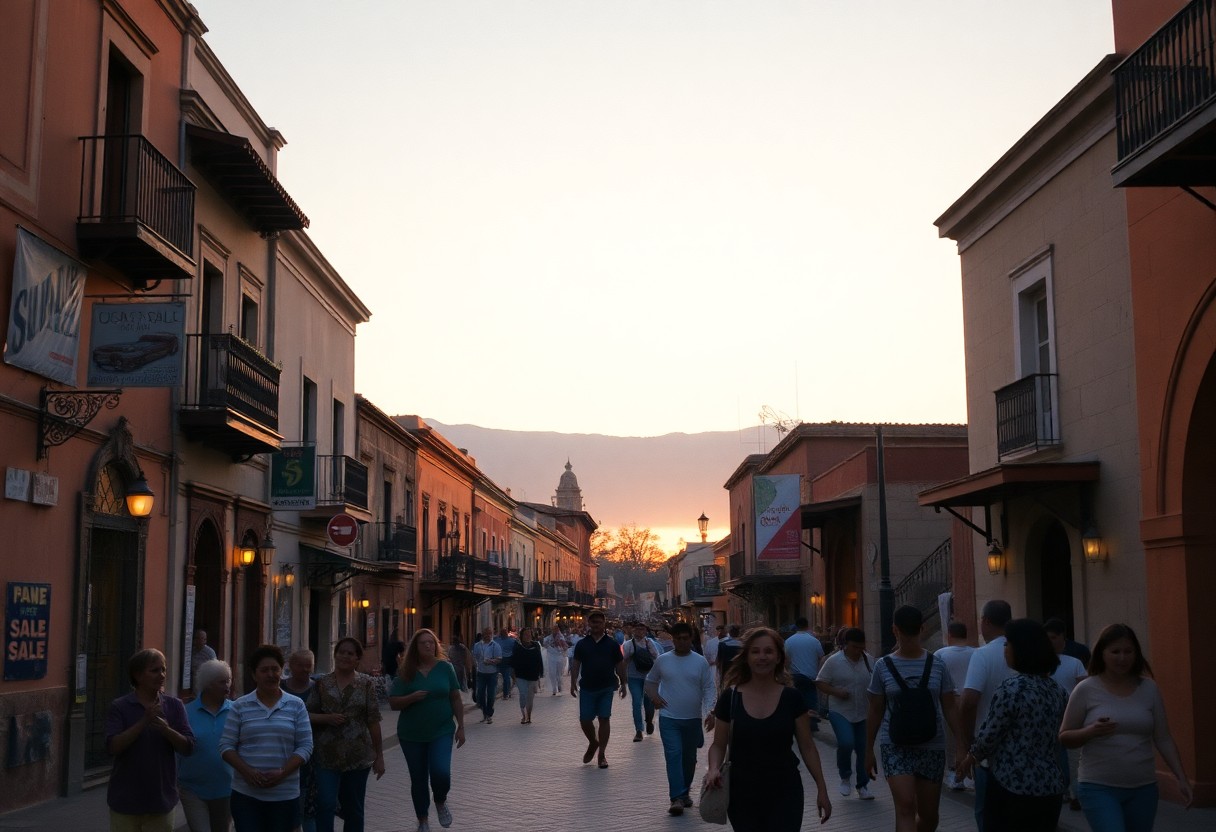
Housing Market Changes
You’ll notice significant transformations affecting property values and market dynamics after dramatic shifts in San Miguel de Allende’s real estate landscape. The once-stable housing market has experienced unprecedented changes, with international buyers and local sellers reshaping the economic environment. You might observe how these developments create opportunities and challenges for property owners and potential investors in this historic Mexican city.
Surge in Expat Homebuyers
Housing demand from international buyers has dramatically escalated property prices in San Miguel de Allende. North American and European expatriates are increasingly viewing this city as an attractive investment destination, driving up real estate values and transforming neighborhood demographics. Understanding these market trends can provide valuable insights into the city’s evolving economic landscape.
Rental Market Dynamics
Expat influx has substantially altered rental market conditions, creating competitive pricing structures and limited availability for long-term residents. You might observe how short-term vacation rentals are displacing traditional housing options, causing significant challenges for local community members seeking affordable accommodations.
Another critical aspect of San Miguel’s rental market involves the economic stratification emerging from these changes. You’ll notice how international investment creates a two-tiered housing ecosystem, where premium properties cater to wealthy expatriates while residents face increasing housing pressures.
Reasons for Selling Property
Across San Miguel de Allende, property owners are motivated by various economic and personal factors when deciding to sell. Reasons might range from capitalizing on market appreciation to responding to changing personal circumstances or investment strategies.
In addition to individual motivations, broader market trends are influencing property sales. You’ll discover that economic uncertainties and shifting global migration patterns significantly influence homeowners’ decisions to list their properties, creating a dynamic and unpredictable real estate environment in this renowned Mexican city.
Urban Development and Gentrification
After years of rapid transformation, San Miguel de Allende has experienced significant urban sprawl that dramatically alters its traditional landscape. You might notice how international investors and developers are reshaping the city’s architectural fabric, introducing modern complexes and luxury developments that contrast sharply with the historic colonial aesthetic. These changes are pushing the boundaries of the city’s historical character, creating tensions between preservation and progress.
Infrastructure Changes
At the core of urban development, you’ll witness substantial infrastructure modifications redefining San Miguel’s urban environment. New roads, expanded utilities, and enhanced transportation networks are emerging, reflecting the city’s growing international appeal. While these changes potentially improve connectivity, they also challenge the city’s traditional infrastructure and create complex dynamics for existing residents.
Impact on Local Businesses
With gentrification accelerating, local businesses face unprecedented challenges. High-end boutiques, international chains, and tourist-focused enterprises increasingly squeeze out traditional and family-owned shops. You’ll observe a gradual transformation of commercial landscapes that prioritizes foreign investment over local economic sustainability.
Due to the economic pressures of gentrification, many long-established local businesses are struggling to maintain their financial viability. Rising rental costs, increased competition from international brands, and shifting consumer demographics create a challenging environment for traditional entrepreneurs. You might witness a systematic erosion of San Miguel’s authentic economic ecosystem.
Displacement of Long-Term Residents
Displacement of long-term residents has become a significant consequence of urban redevelopment. Rising property values and increased living expenses force many local families to relocate, fundamentally altering the city’s social fabric and cultural composition.
Local communities are experiencing profound social disruption as generational residents are priced out of neighborhoods they’ve inhabited for decades. You might observe how this displacement affects individual families and threatens the cultural continuity and social networks that historically defined San Miguel de Allende’s unique character.
Natural Environment and Climate Concerns
Many residents are experiencing growing concerns about San Miguel de Allende’s environmental challenges. Climate change is dramatically transforming the local ecosystem, creating unprecedented pressures on your daily life and community sustainability. You’ll notice significant shifts in environmental conditions, making the once-idyllic location increasingly difficult to inhabit.
Water Scarcity Issues
Natural water resources in San Miguel de Allende are rapidly depleting. Groundwater levels are dropping at an alarming rate, forcing your community to confront potential water shortages. Your community faces significant challenges in maintaining an adequate water supply, with municipal resources becoming increasingly strained and unpredictable.
Extreme Weather Patterns
Water-related extreme weather events are becoming more frequent and intense. Unprecedented drought conditions and sudden, violent rainfall disrupt your standard life patterns. You’ll experience increasingly unpredictable climate scenarios that challenge traditional living expectations in this region.
Understanding the complexity of San Miguel’s changing weather requires deep analysis. Climate models predict increasingly erratic precipitation patterns, with longer dry seasons interspersed with intense, destructive rainfall events. You’ll witness dramatic shifts that challenge agricultural practices, urban infrastructure, and community resilience.
Impact on Agriculture
Water scarcity is devastating local agricultural practices. Traditional farming methods are becoming unsustainable, forcing you to confront significant economic and food security challenges. Your local agrarian community faces unprecedented transformation and potential collapse.
Due to prolonged environmental stress, agricultural productivity is dramatically declining. You’ll observe significant shifts in crop yields, with traditional agricultural zones becoming increasingly unproductive. Local farmers are compelled to adapt or abandon their generational lands, creating profound socioeconomic disruptions in San Miguel de Allende’s rural landscape.
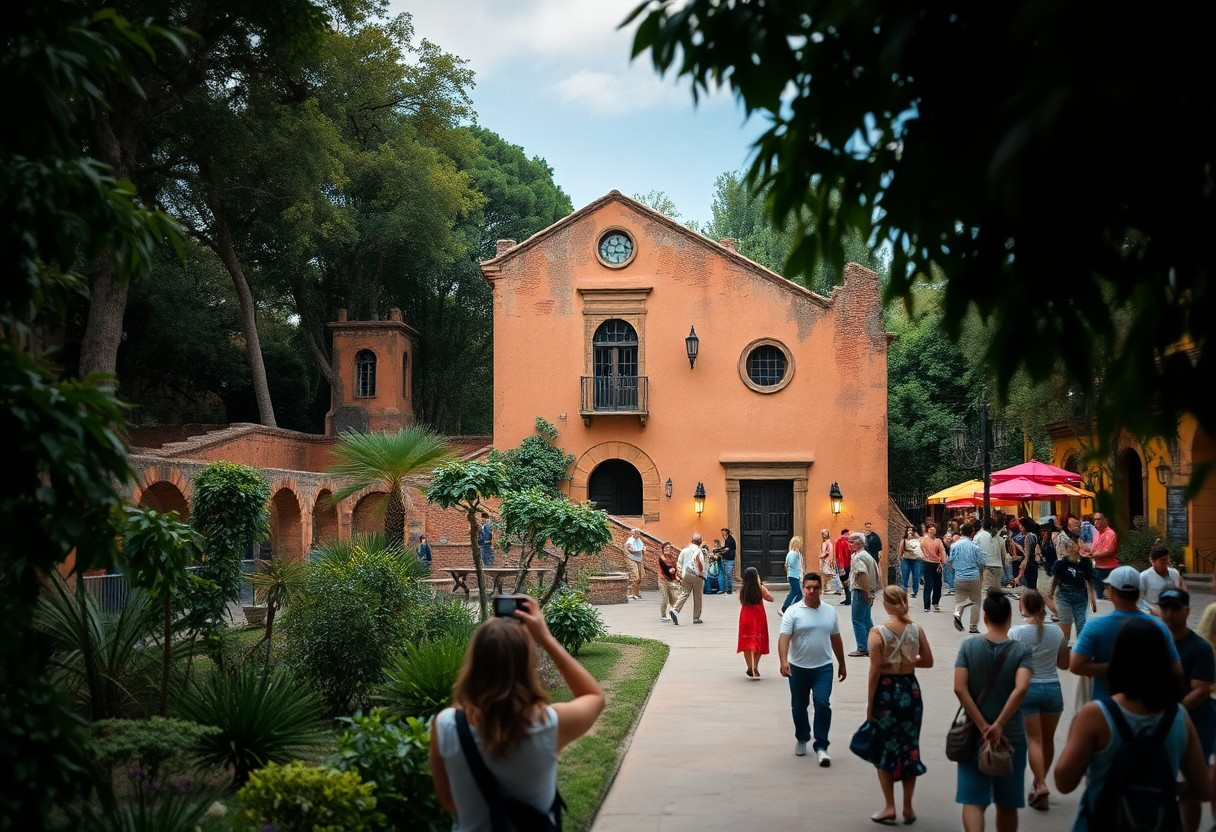
Safety and Security Issues
Not all that glitters is gold in San Miguel de Allende. You might encounter unexpected security challenges that challenge the picturesque facade of this expat haven. Growing concerns about personal safety and community well-being have driven residents to reconsider their commitment to this once-idyllic destination.
Crime Rates and Incidents
Safety statistics in San Miguel de Allende reveal a complex landscape of urban risk. You will notice an uptick in petty crimes, property break-ins, and occasional violent incidents that disrupt the town’s tranquil image. Local data suggests an increasing trend in criminal activities that could make you feel vulnerable in your neighborhood.
Community Perception of Safety
You’ll detect a palpable shift in community sentiment between whispers and open discussions. Residents are becoming more cautious, sharing stories of personal experiences that paint a nuanced picture of safety challenges in San Miguel de Allende.
You might observe a growing unease among locals and expatriates each month. The perception of safety has transformed from a carefree environment to one requiring constant vigilance. Neighborhood watch groups, security consultations, and personal protection strategies have become more prevalent.
Changes in Law Enforcement
Community responses to security challenges have highlighted significant gaps in local law enforcement. Police resources and response times are increasingly strained, creating potential risks for residents and visitors alike.
The local law enforcement landscape in San Miguel de Allende has undergone substantial transformations. You might witness reduced police presence, limited investigative capabilities, and challenges maintaining consistent community safety protocols. These systemic issues contribute to the region’s growing concerns about personal and collective security.
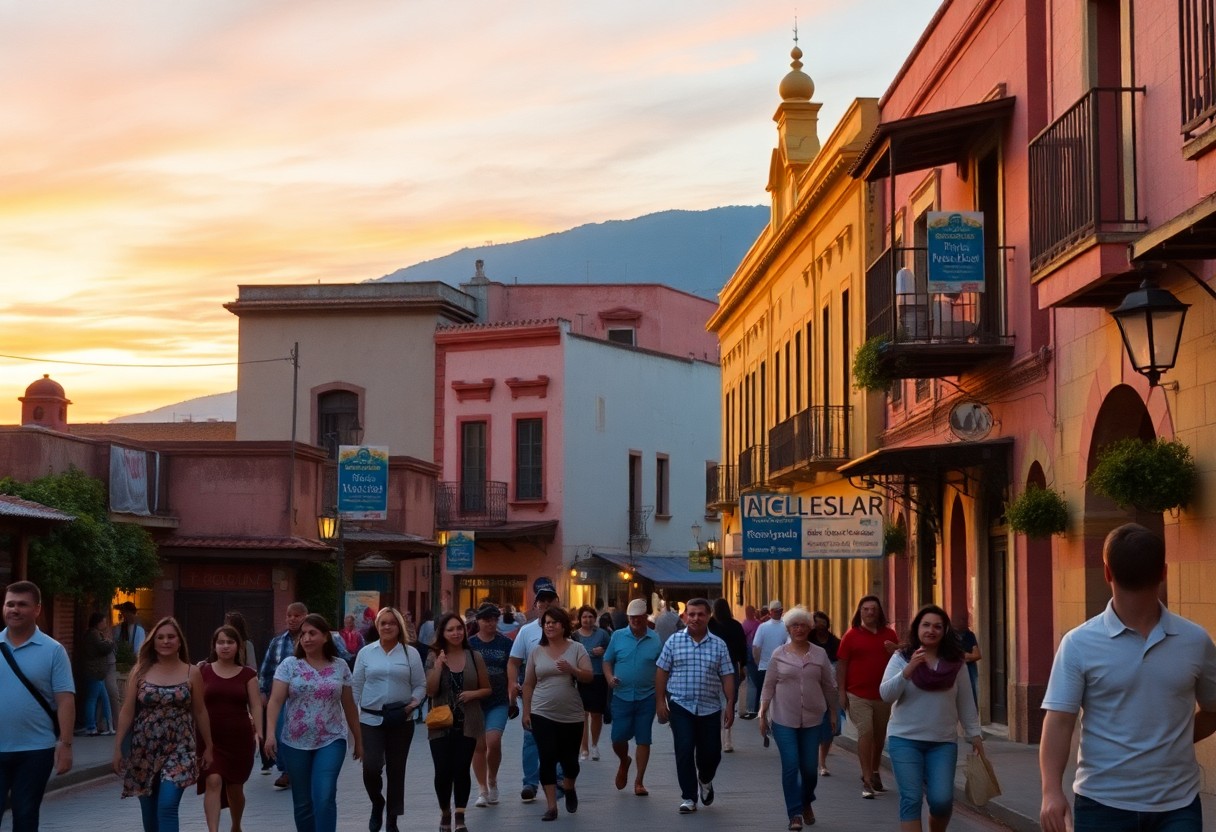
Healthcare and Services Availability
Once again, you’ll find that San Miguel de Allelandscape presents significant challenges. The city’s medical infrastructure struggles to meet the comprehensive needs of both locals and expatriates. While the town appears picturesque, you might discover that healthcare accessibility and quality are not as idyllic as the colorful streets suggest. The limitations of local healthcare systems could quickly challenge your expectations of robust medical services.
Quality of Medical Facilities
Behind the charming facade, San Miguel de Allende’s medical facilities often fall short of international standards. You’ll encounter basic clinics with limited equipment and outdated technologies. Your medical care might feel rudimentary compared to what you’re accustomed to in North American or European healthcare systems. The facilities, while functional, may not provide the comprehensive diagnostic and treatment capabilities you would expect in more developed medical environments.
Availability of Specialised Services
Services for specialized medical treatments are notably scarce in San Miguel de Allende. You might face significant challenges when seeking advanced medical interventions or treatments for complex conditions. The local healthcare ecosystem is primarily geared towards primary and basic secondary care, leaving you with limited options for specialized medical needs.
It becomes increasingly apparent that specialized medical services are a significant concern for expatriates. When you require advanced treatments like oncology, neurosurgery, or complex cardiac interventions, you’ll likely need to travel to larger cities like Mexico City or Guadalajara. This necessity for medical travel can be both financially and emotionally taxing, potentially disrupting your long-term healthcare planning.
Expat Health Insurance Considerations
Availability of comprehensive health insurance for expatriates presents another layer of complexity. You’ll discover that many international insurance plans have limited coverage in San Miguel de Allende. Your existing health insurance might not fully translate to adequate medical protection in this region, requiring careful navigation of local healthcare landscapes.
Indeed, health insurance for expatriates in Allende demands meticulous research and strategic planning. You must evaluate multiple insurance options that provide local and international medical coverage. Your approach should include understanding evacuation protocols, assessing coverage for pre-existing conditions, and identifying which regional and global medical facilities are included in your insurance network.
Community and Social Life
Despite San Miguel de Allende’s picturesque charm, the community dynamics are shifting. The expat influx has dramatically transformed the social landscape, creating tensions between long-time residents and newcomers. You might notice a growing sense of disconnection, where the once-tight-knit community feels increasingly fragmented and stratified by economic and cultural differences.
Expat vs. Local Integration
Behind the friendly facades, you’ll discover significant challenges in genuine cultural integration. Language barriers and socioeconomic disparities create invisible walls between expatriates and residents. You may observe that while some expats attempt to engage, many remain in insular social circles, limiting meaningful cross-cultural connections.
Changes in Social Dynamics
The traditional social fabric of San Miguel de Allende is undergoing rapid and potentially irreversible transformations. You’ll witness how increased property values and tourism reshape neighborhood interactions, pushing out long-standing community structures and replacing them with more transient, economically stratified relationships.
Consequently, the social ecosystem in San Miguel de Allende is experiencing profound shifts. Gentrification is fundamentally altering the composition of local families, with wealthier expatriates and tourists gradually replacing them. You might observe how traditional community networks are being systematized and dismantled, replaced by more commercially driven social interactions that prioritize profit over genuine human connection.
Support Networks
Expat communities have developed their own parallel support systems, often excluding local residents from these resource networks. These self-contained social groups provide comfort and assistance primarily to their own members, creating additional layers of social segregation.
With the emergence of these exclusive support networks, you’ll notice a complex social landscape developing. Expatriate communities are creating sophisticated, self-sustaining ecosystems that offer comprehensive services ranging from healthcare referrals to social events. This effectively creates a parallel society within San Miguel de Allende that operates with minimal integration with the local population.
Personal Experiences
Once again, personal narratives reveal the complex reality behind San Miguel de Allende’s picturesque facade. You might find that living here isn’t always the idyllic experience portrayed in travel magazines. Your expectations can quickly collide with the day-to-day challenges of expatriate life, including cultural adaptation, unexpected costs, and social dynamics that aren’t immediately apparent during a short visit.
Stories of Departure
Many expats’ experiences are laced with tales of unexpected transitions. You’ll hear stories of individuals who initially fell in love with San Miguel’s charm but gradually discovered misalignments between their dreams and reality. Your romantic vision might clash with practical considerations like healthcare limitations, rising living expenses, and potential isolation from your original support network.
Reflections on Life After San Miguel
Above all, leaving San Miguel represents a profound personal journey. You might experience a mix of relief and nostalgia, understanding that your time here was transformative yet temporary. Your perspective shifts, and you recognize the city as a chapter in your life rather than a permanent destination.
Considering the broader implications, your post-San Miguel life involves deep introspection. You’ll likely analyze the lessons learned, the personal growth experienced, and the cultural insights gained. Your understanding of expatriate life becomes more nuanced, acknowledging the challenges and opportunities of such a significant geographical and cultural transition.
Advice for Prospective Movers
On the surface, San Miguel de Allende appears enchanting. However, you should approach your potential move with careful research and realistic expectations. Your decision must balance romantic ideals with practical considerations, understanding that paradise has its complexities.
Departure requires thorough preparation. You’ll want to conduct extensive research, connect with current and former expatriates, and visit multiple times before making a permanent move. Your strategy should include understanding local bureaucracy, healthcare systems, financial implications, and cultural nuances. Networking with experienced expats can provide invaluable insights into navigating the challenges of living in San Miguel de Allende.
The Role of Digital Nomads
Now, digital nomads have transformed San Miguel de Allende’s landscape, bringing a wave of remote workers who see the city as an ideal workspace. More professionals will leverage high-speed internet and affordable living costs to create a flexible lifestyle. These location-independent workers are reshaping the social and economic dynamics, turning San Miguel into a global remote work destination.
Growing Trend of Remote Work
Around 60% of digital nomads choose San Miguel de Allende as their temporary home, attracted by the city’s charming colonial architecture and vibrant cultural scene. You’ll find professionals from tech, design, and creative industries setting up temporary workspaces in cafes, co-working spaces, and rental apartments, fundamentally changing the traditional work environment.
Impact on Local Economy
Digital nomads are injecting significant economic stimulus into San Miguel. They spend on local services, dine at restaurants, rent apartments, and support small businesses. Their presence is creating new economic opportunities, particularly in the hospitality and service sectors.
With the influx of digital nomads, you’ll witness a nuanced economic transformation. These remote workers typically have higher disposable incomes than traditional tourists, increasing spending in local markets, restaurants, and service industries. Their extended stays contribute to more stable revenue streams for local businesses, potentially driving property values and creating job opportunities in supporting sectors.
Balancing Work and Local Culture
Digital nomads navigate a delicate balance in San Miguel between cultural immersion and professional productivity. You’ll observe them integrating local traditions while maintaining their global work connections, creating a unique hybrid lifestyle that respects and adapts to the local community.
In addition to economic impacts, digital nomads are facilitating cultural exchange. You’ll see them learning Spanish, participating in local festivals, and engaging with community events. This interaction creates mutual understanding, potentially bridging cultural gaps and fostering a more harmonious San Miguel de Allende environment.
Future of San Miguel de Allende
Unlike previous decades, San Miguel de Allende stands at a critical crossroads of transformation. Your understanding of this destination’s trajectory will depend on complex socioeconomic factors rapidly reshaping its landscape. The city’s future hinges on balancing international appeal with local sustainability, potentially determining whether it remains a vibrant cultural hub or becomes another over-gentrified tourist destination.
Predictions for Development
Below the surface of current trends, San Miguel de Allende is experiencing significant urban metamorphosis. You can anticipate continued infrastructure expansions, increased real estate development, and growing economic diversification. These changes might appeal to international investors while simultaneously challenging the city’s traditional architectural and cultural integrity.
Possible Decline in Expat Appeal
Before dismissing potential shifts, you should recognize emerging challenges in expat community dynamics. Rising living costs and increasing competition might diminish San Miguel’s previous magnetic attraction for international residents seeking affordable, picturesque living environments.
For instance, recent economic pressures have created substantial barriers for newcomers. Property prices have escalated dramatically, making entry more difficult. Rental markets have become increasingly competitive, with local and international investors driving prices upward. Additionally, infrastructure strain and growing local resentment toward foreign populations might further complicate the expat experience.
Preservation of Local Identity: Maintaining cultural authenticity represents a delicate balance for San Miguel de Allende. You will witness ongoing efforts to protect traditional practices, architectural heritage, and community structures amid rapid internationalization.
With increasing global attention, local authorities and community leaders are implementing strategic preservation initiatives. These include strict architectural conservation regulations, cultural education programs, and policies designed to protect indigenous art forms and traditions. You might observe a concerted effort to integrate international influences while maintaining the city’s unique character, ensuring that San Miguel de Allende remains a living, breathing cultural ecosystem rather than becoming a museum-like tourist attraction.
Alternatives to San Miguel de Allende
All expats seeking new horizons have multiple destinations beyond San Miguel de Allende. You’ll find emerging communities that offer similar cultural richness, lower living costs, and vibrant international communities. Guanajuato, Querétaro, and smaller colonial towns present compelling alternatives with unique characteristics that might align perfectly with your lifestyle preferences.
Other Expanding Expat Hotspots
On the radar of international residents, cities like Mérida in Yucatán and Puerto Vallarta are gaining popularity. These locations offer affordable living, rich cultural experiences, and welcoming expatriate communities that provide a sense of belonging and adventure.
Considerations for Relocation
You made a decision about your potential new home by evaluating multiple factors. Healthcare, feasibility, climate, infrastructure, and local community dynamics are critical elements that will influence your expatriate experience.
For instance, each potential destination presents unique challenges and opportunities. You’ll want to research visa requirements, local healthcare quality, internet connectivity, and proximity to international airports. Understanding the nuanced differences between locations can significantly impact your long-term satisfaction and comfort.
Cost Comparisons
To help you navigate potential relocation options, here’s a comparative breakdown:
| Location | Monthly Cost Estimate |
|---|---|
| San Miguel de Allende | $1,500 – $2,500 |
| Mérida | $1,000 – $1,800 |
| Querétaro | $1,200 – $2,000 |
Expat communities provide valuable insights into living expenses. Consider the following comprehensive cost analysis:
| Expense Category | Comparative Cost Range |
|---|---|
| Rent | 20-40% Lower in Alternative Cities |
| Utilities | 15-25% More Affordable |
| Healthcare | Significant Cost Savings Potential |
Conclusion
Now, you might understand why San Miguel de Allende’s charm is fading for many residents. Your perception of this picturesque town shifts as you consider rising costs, overcrowding, and cultural displacement. The paradise you once imagined reveals complex challenges driving long-term inhabitants and expats away. While the city remains visually stunning, its sustainability as a livable community is increasingly questioned. You’ll find that the economic pressures and changing demographics are reshaping San Miguel’s social landscape, forcing many to seek alternatives that offer more stability and authentic cultural experiences.
FAQ
Why are expats increasingly departing San Miguel de Allende despite its reputation as a cultural paradise?
Rising cost of living, escalating real estate prices, and growing gentrification drive many expatriates away from San Miguel de Allende. The city’s popularity has transformed local economic dynamics, making daily expenses significantly higher than a decade ago. Foreigners seeking an affordable lifestyle now face housing costs comparable to mid-tier U.S. cities.
How has the influx of international residents impacted San Miguel de Allende’s original community and cultural landscape?
The massive expatriate population has fundamentally altered San Miguel’s social fabric. Local Mexican residents experience displacement, increased living expenses, and cultural dilution. Luxury renovations and international-style businesses reshape traditional neighborhoods, gradually eroding the authentic community character that initially attracted foreigners.
What economic and social challenges drive the recent exodus from San Miguel de Allende?
Economic pressures include skyrocketing property taxes, competitive rental markets, and reduced purchasing power for locals and international residents. Social challenges involve cultural misunderstandings, limited integration between expatriate and Mexican communities, and increasing tensions around neighborhood transformations. These factors create an unsustainable environment for long-term settlement, prompting many to seek alternative destinations with more balanced cultural and economic ecosystems.
See also: Travel & Adventure.
See also: Local Transport & Excursions.
Jasper Lennox is an insightful author and dedicated chronicler of the vibrant culture and history of San Miguel de Allende. With a passion for exploring its rich tapestry of art, architecture, and community, he crafts engaging narratives that showcase the charm and allure of this enchanting Mexican town. Through his writing, Jasper invites readers to discover the unique stories and experiences that make San Miguel a beloved destination for travelers and locals alike.
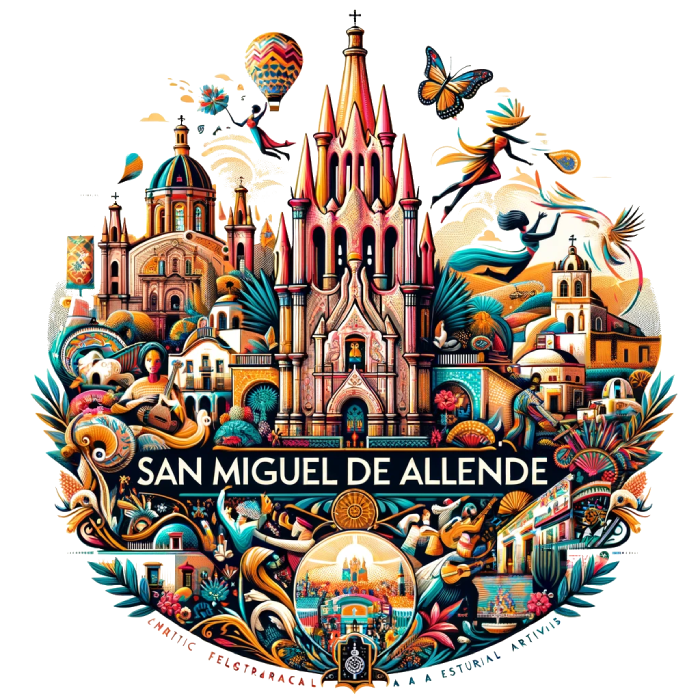


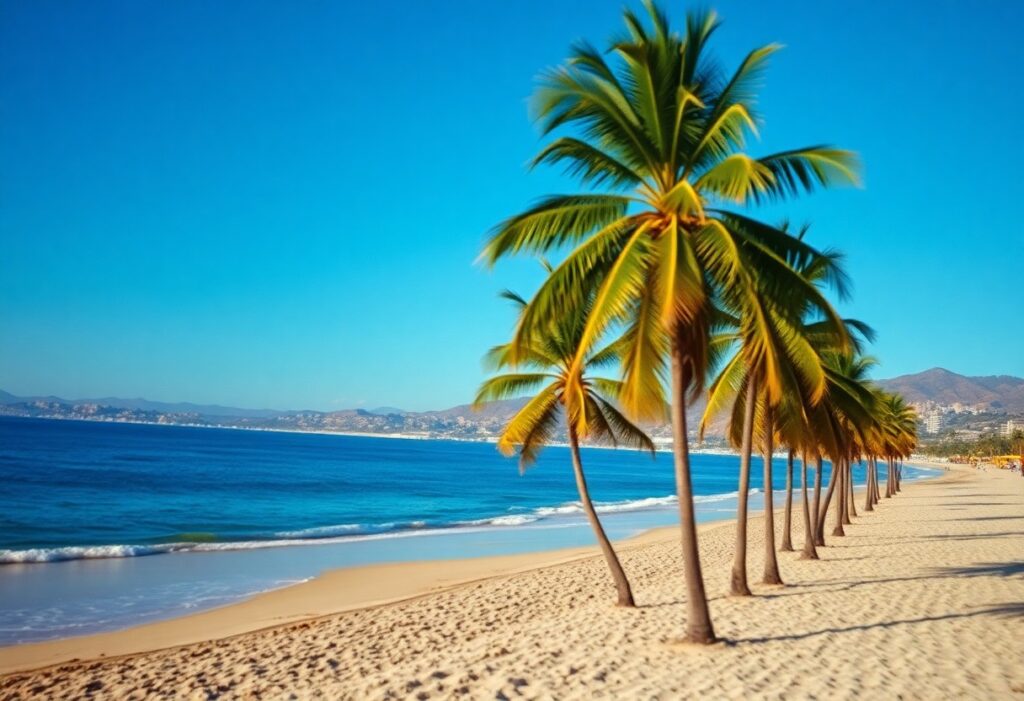
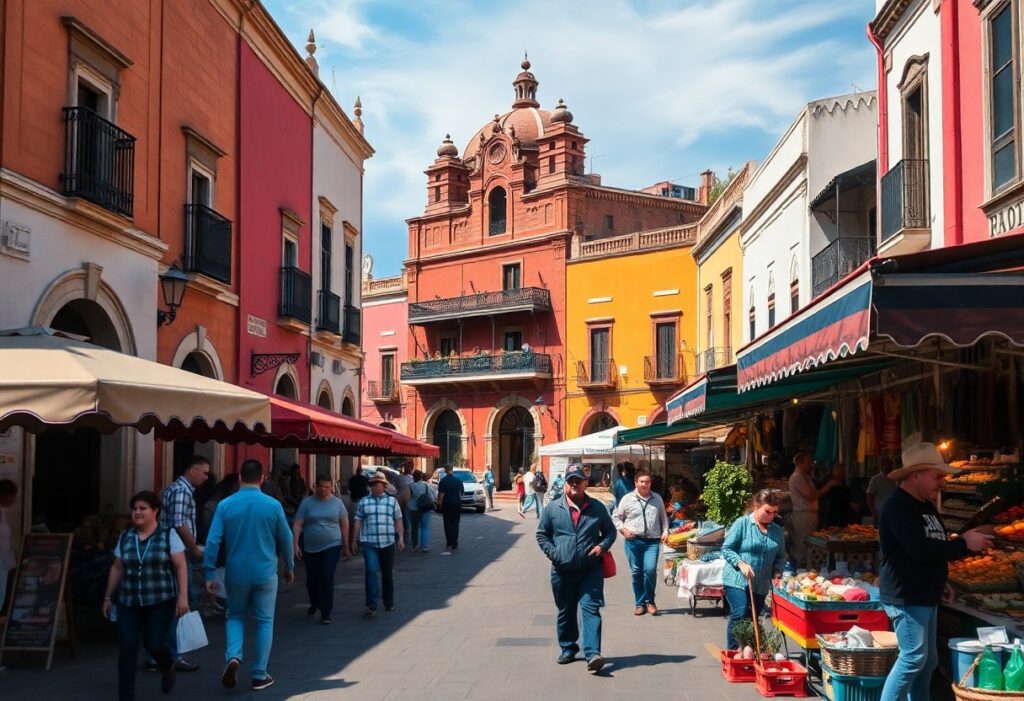
I appreciate your candid reflection on the challenges facing San Miguel de Allende. It’s a beautiful place with a rich history and an artistic spirit that draws many, myself included. I moved here a couple of years ago, and while the charm is undeniable, I have also felt the weight of rising costs and changes in the community dynamic.
It’s great to hear your perspective on San Miguel de Allende. You’re spot on about the charm that pulls so many of us in. The art scene is vibrant, and the history is woven into the very fabric of the streets.
It’s great to hear from someone who’s navigated the move to San Miguel de Allende and feels that mix of charm and challenge. You’re right; the city is stunning and has such a unique vibe. That artistic spirit can really captivate you.
Navigating life in San Miguel de Allende does come with its share of ups and downs, doesn’t it? The way the artistic spirit weaves through everyday life here is something special. You can literally feel the creativity bubbling up from the cobblestone streets to the vibrant galleries that line them.
You’ve hit on some crucial points about San Miguel de Allende. I’ve noticed similar trends in other expat hotspots too. It’s like a double-edged sword; the charm draws people in, but the rising living costs and shifting demographics can really change the vibe. I remember visiting a few years back and chatting with locals who expressed concerns about how the influx of new residents was affecting traditional customs and community dynamics. It’s a delicate balance between preserving what makes a place special and adapting to new realities.
You’ve really captured the essence of what makes these places both appealing and challenging. The charm of somewhere like San Miguel de Allende is hard to resist, but when I think about the impact on local customs and community, it brings up a lot of questions about sustainability.
You’ve touched on a crucial aspect of the conversation surrounding places like San Miguel de Allende. It’s easy to get swept away by the picturesque streets and vibrant culture, and I can completely understand why that charm draws so many people in. But it’s essential to peel back those layers and really think about the impact of tourism and how it reshapes communities.
“Absolutely, the balance between charm and sustainability is crucial. If you’re interested in exploring how local communities navigate these challenges, check out this insightful resource!”
https://fallinginlovewithsanmiguel.com/book-attractions
It’s interesting to hear about the challenges facing San Miguel de Allende, a city I’ve always admired for its unique blend of rich history and contemporary culture. As a potential expat, I’ve often thought about what life might be like there, and these rising costs and shifting demographics certainly add a layer of complexity to that dream.